Razer Cobra Pro Mouse - Review
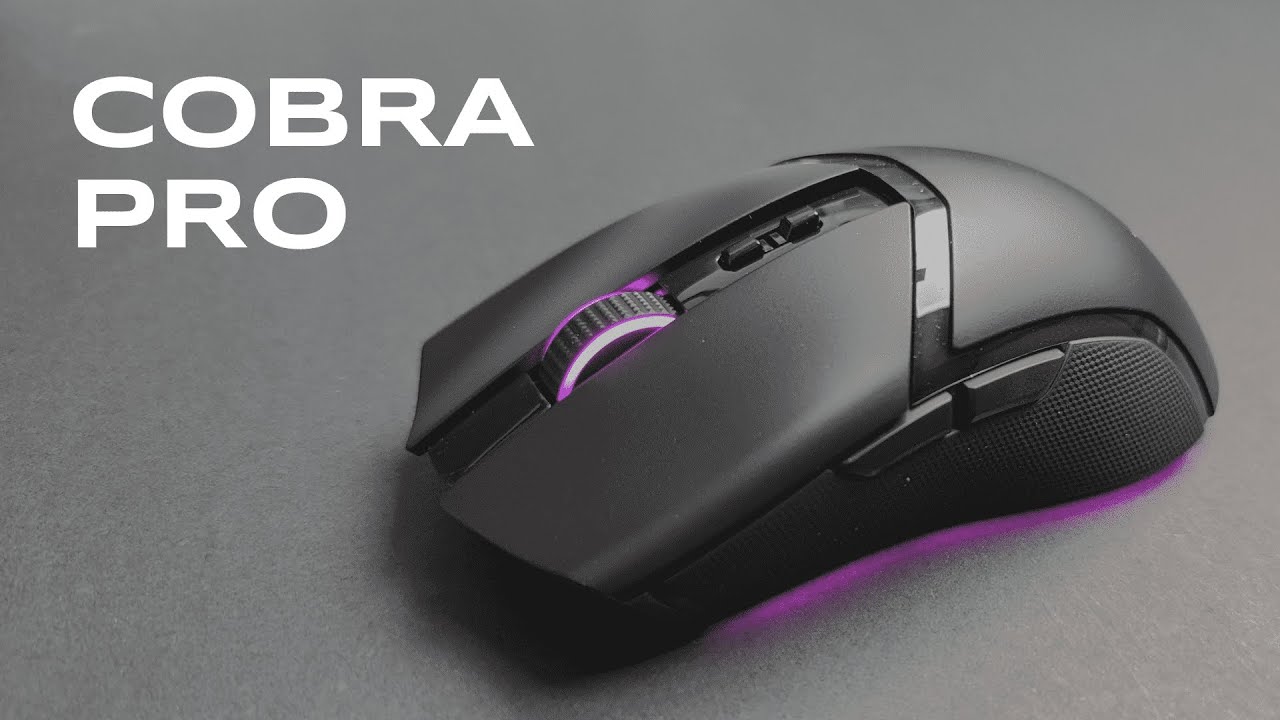
I put the Razer Cobra Pro through its paces so you do not have to. This is a wireless mouse aimed squarely at competitive and pro gamers, but it also doubles as a productivity-focused, highly customizable peripheral for anyone who wants a premium feel. In this review I break down the connectivity options, build quality, buttons and customization, the clicking experience, comfort across grip styles, RGB, software options, battery life, and who should consider buying it.
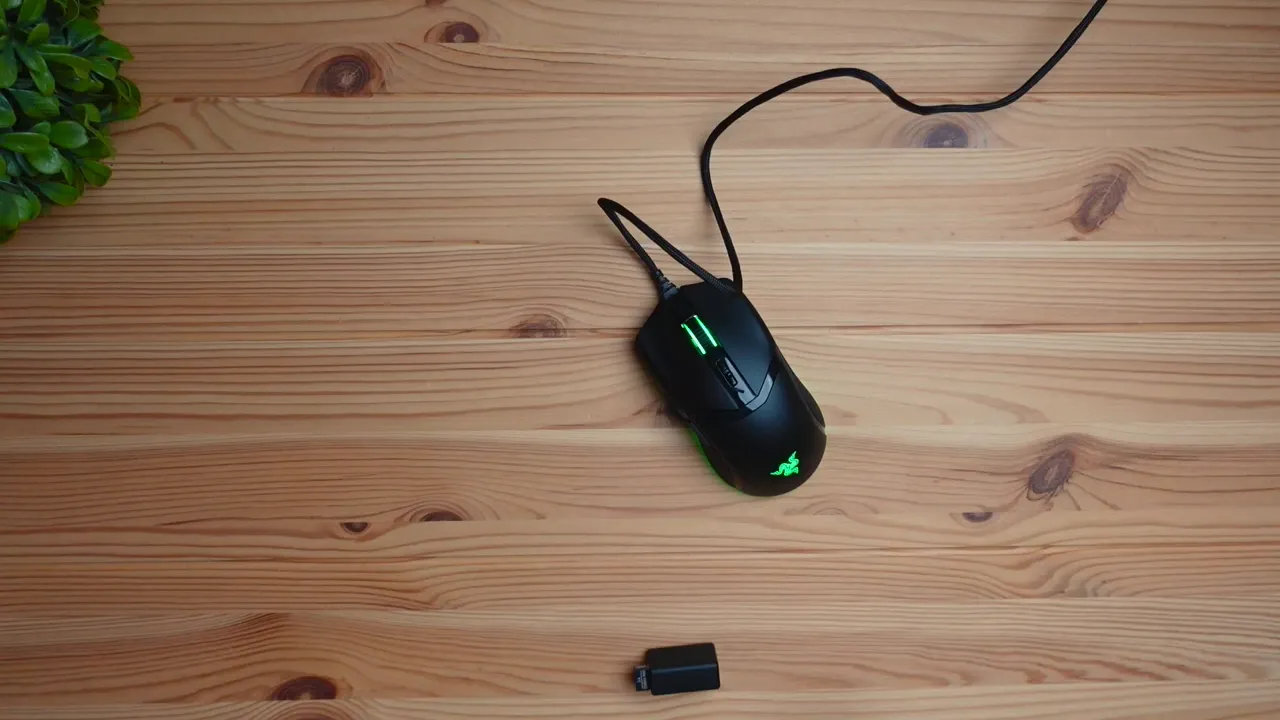
Table of Contents
- Unboxing and three ways to connect
- Design and build quality
- Buttons and customization
- Switches and click feel
- Comfort and grip styles
- RGB and lighting options
- Razer Synapse software and performance tuning
- Battery life and wireless behavior
- Who is the Razer Cobra Pro best for?
- Final impressions
- Frequently asked questions
- Closing thoughts
Unboxing and three ways to connect
Out of the box you get the mouse, a tiny USB receiver, and a separate dongle that can be plugged into the receiver or directly into your machine. The Cobra Pro supports three connection modes: wired, Hyperspeed wireless via the included receiver, and Bluetooth.
Connection modes and speed
- Wired: fastest, lowest latency. Ideal if you want zero compromise for competitive play.
- Hyperspeed wireless: the mid tier in latency and convenience. This is Razer's low-latency wireless and the main draw for wireless competitive play.
- Bluetooth: most convenient and best for battery life, but the slowest option and not ideal for low-latency gaming.
One small but clever detail: the dongle can be docked into a recess inside the mouse so you can use the included USB extender and keep the receiver close to the mouse. "The reason people want to do this is so that the receiver will be right next to the mouse sitting on your desk so you'll have the fastest possible wireless connection."
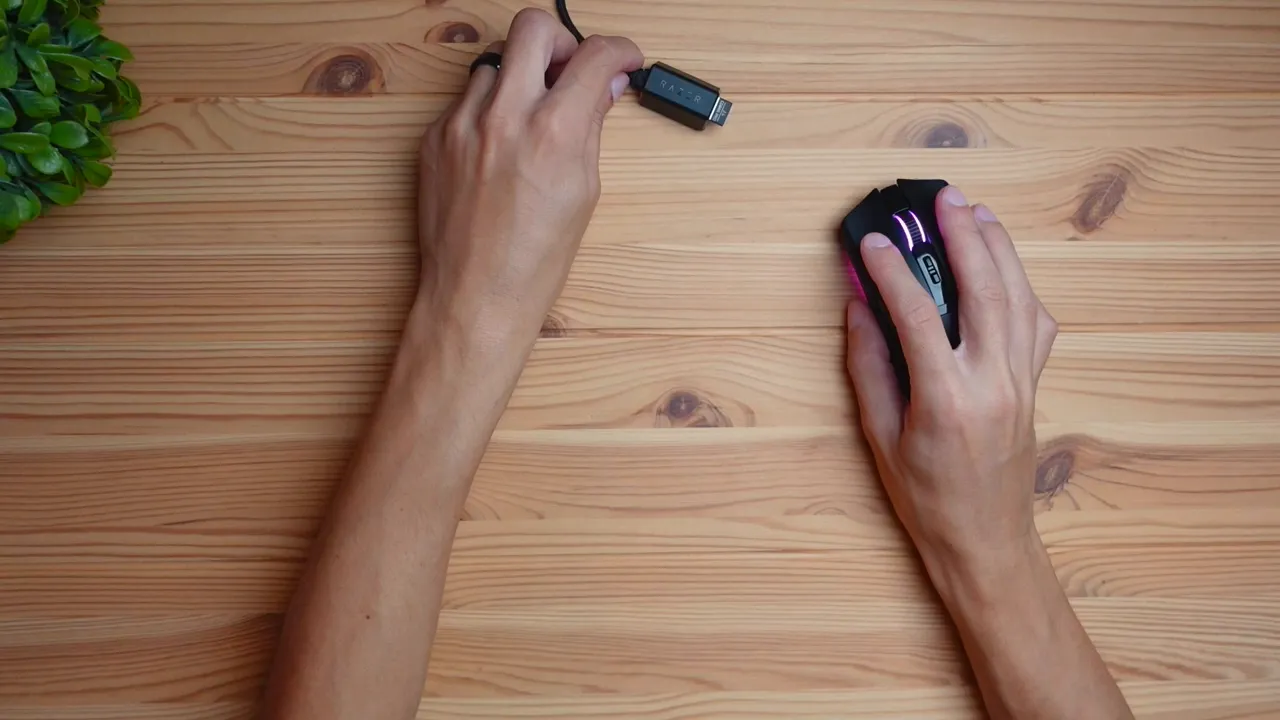
Design and build quality
The Cobra Pro feels premium. The sides feature a tactile rubber grip that gives a firm hold without feeling sticky. The main shell has a smooth finish that is easy to wipe clean and looks sleek on a desk. Attention to tolerances is clear: the scroll wheel has negligible wobble and no audible rattles when tilted. That level of mechanical polish matters when you move the mouse fast or play for long hours.
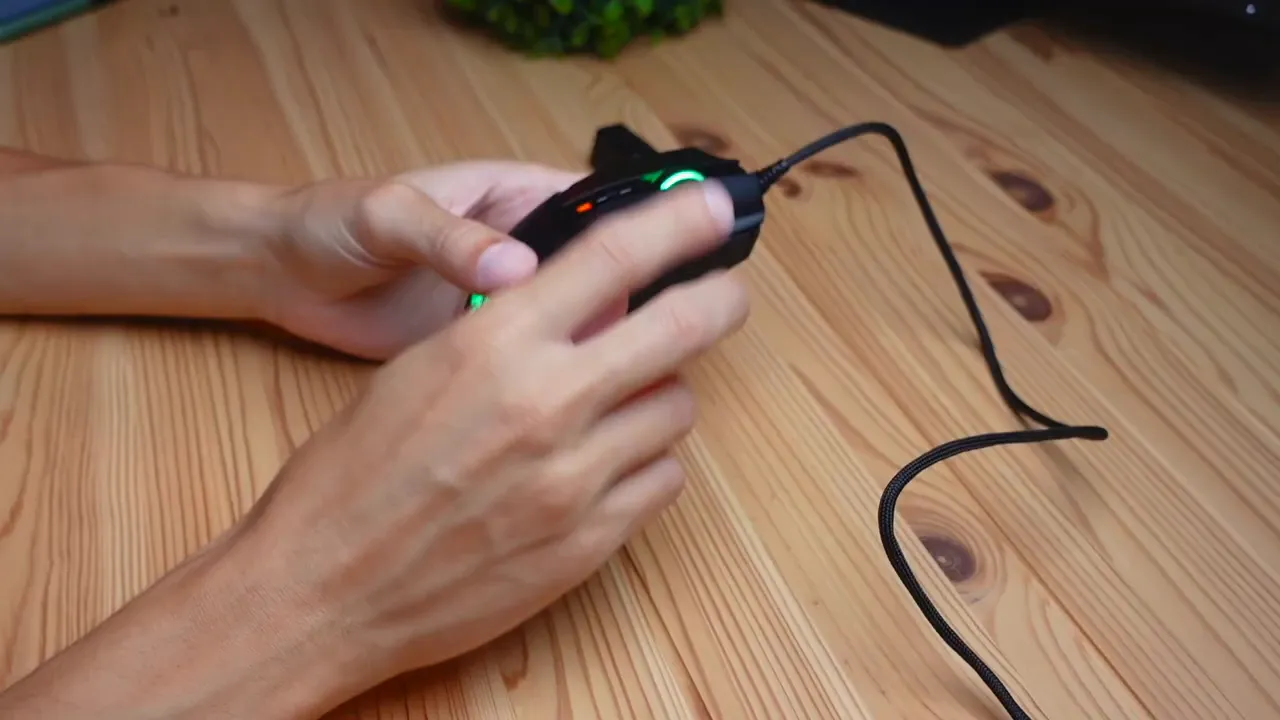
Buttons and customization
This mouse is not just about pointing and clicking. It has multiple programmable controls right out of the box:
- Two DPI switches on top (defaulted to DPI up and DPI down).
- A profile switcher on the bottom to cycle through saved profiles quickly.
- Two side buttons that default to back and forward.
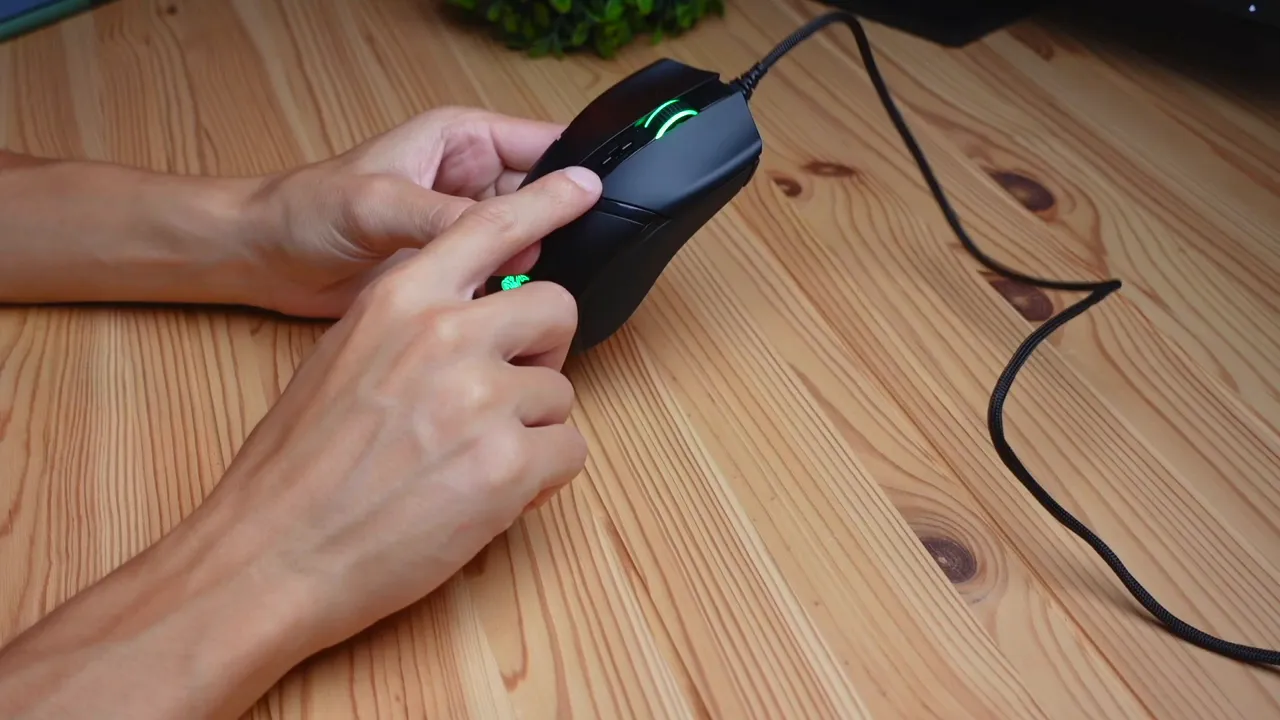
Every one of these buttons can be remapped in Razer Synapse to keyboard macros, multimedia controls, profile switching, mouse functions, lighting triggers, and more. That versatility makes the Cobra Pro useful for gaming, content creation, and productivity workflows.
Switches and click feel
The Cobra Pro uses Razer Gen 3 optical switches. These operate much like mechanical keyboard switches in the sense that you get a tactile, crisp actuation with excellent responsiveness. The switches are rated for competitive-grade actuation with minimal debounce and a very quick reported actuation time.
Here's how the click feels in practice: it is tactile, distinct, and satisfying. Compared to typical membrane-mouse clicks, the Cobra Pro's switches feel sharper and more precise. If you value crisp feedback on every click, these switches deliver.
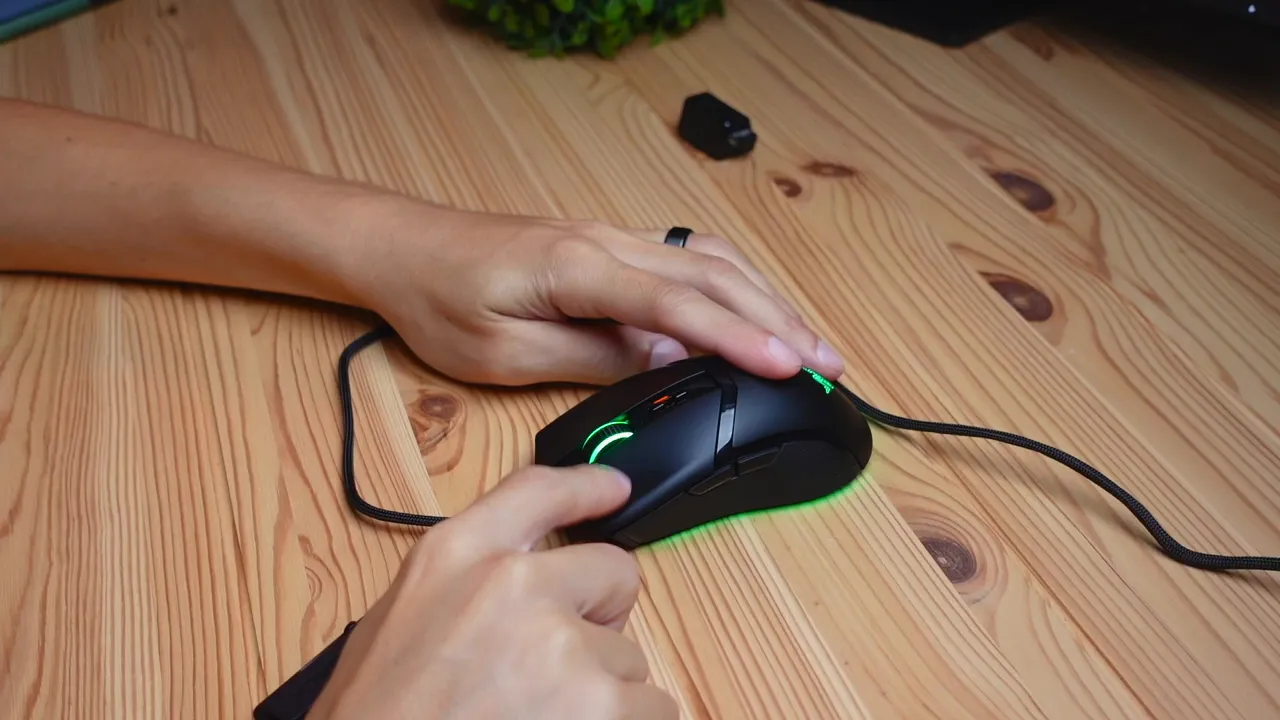
Comfort and grip styles
Comfort will always depend on hand size and grip preference, but the Cobra Pro is built to be versatile. I tested all three common grip styles and found it handled each well:
- Palm grip - Hand rests naturally, and the shell supports a comfortable, relaxed posture.
- Claw grip - Fingers tuck and the mouse still feels stable for quick flicks.
- Fingertip grip - Lightweight feel and good control while the fingertips hover over the buttons.
Note that this is a right-handed only design. If you need an ambidextrous or left-handed model, this is not the mouse for you.
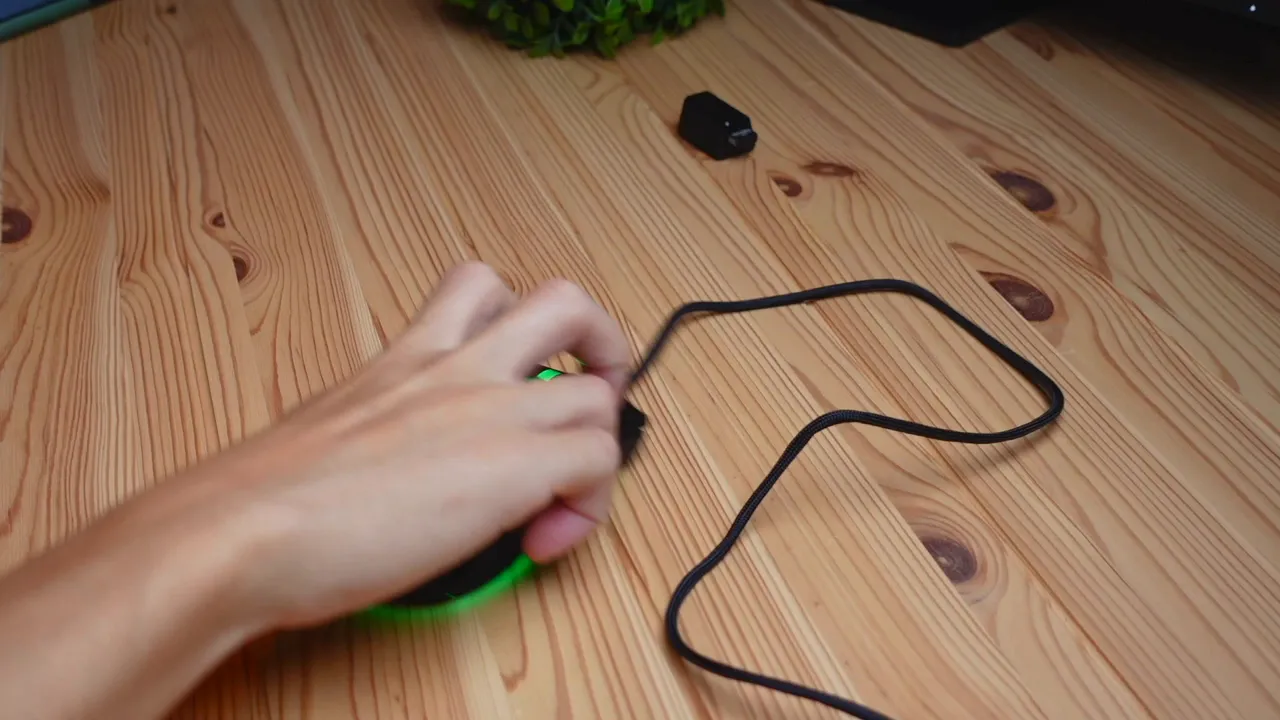
RGB and lighting options
The RGB on the Cobra Pro is bright and vivid. You get a glowing Razer logo, a lit ring near the scroll wheel, and lighting that wraps around part of the shell. Under room lights the lighting looks impressive, and when the room is dim the Chroma effects really pop.
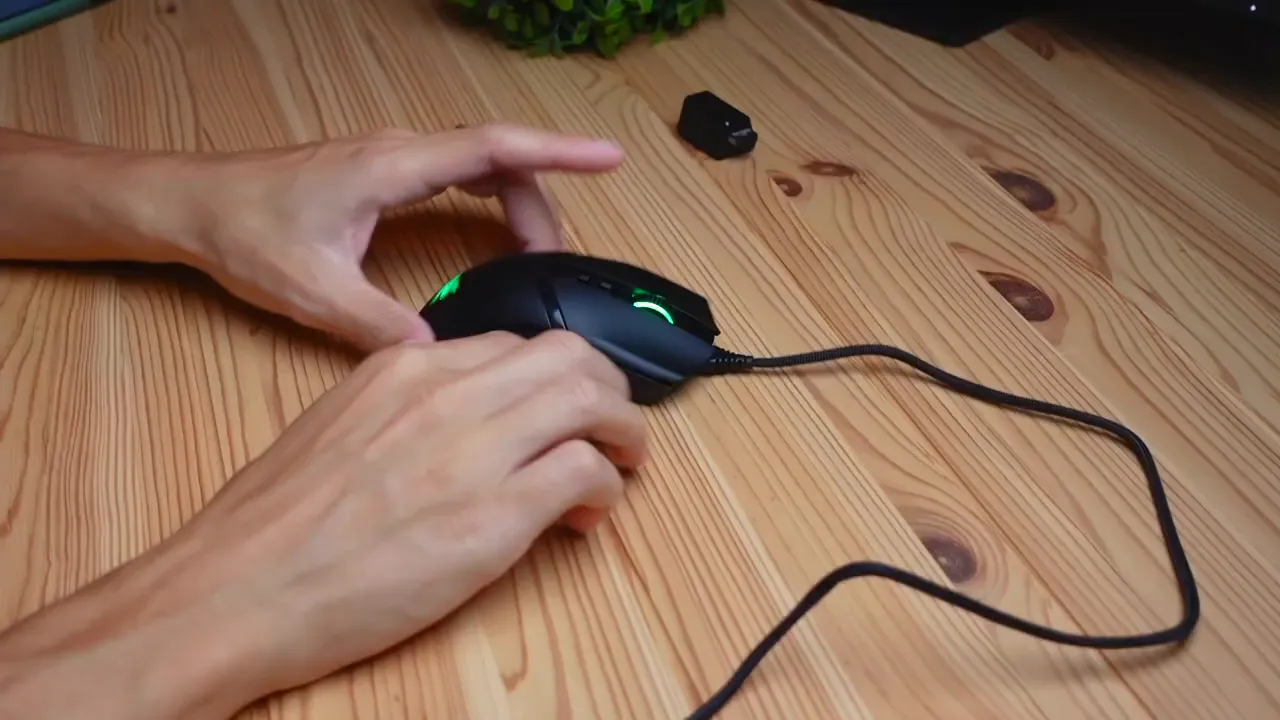
Within the software you can choose from multiple lighting effects. There are preset modes like static color, breathing between colors, and other animated effects. For those who want immersive desk lighting that syncs with games or apps, Razer Chroma provides the ecosystem to do that.
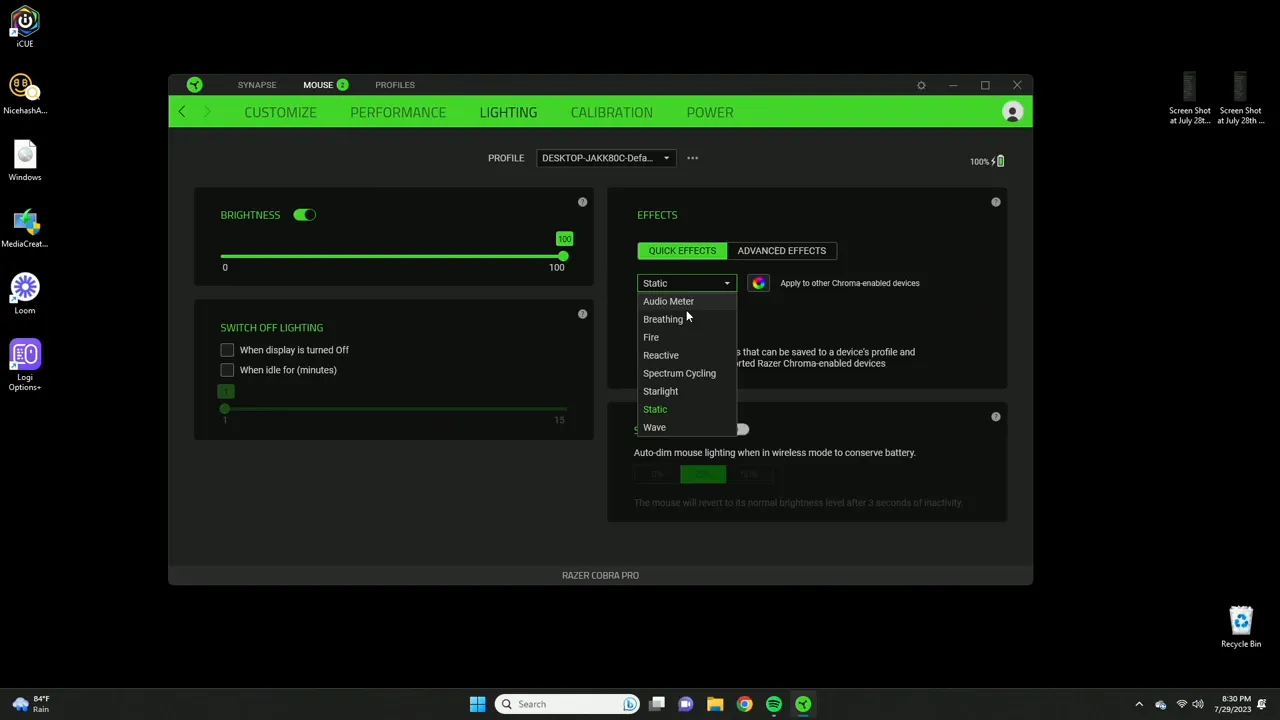
Razer Synapse software and performance tuning
Razer Synapse is where the Cobra Pro unlocks its power. The software offers extensive options for every programmable button, performance tuning for DPI and polling rate, power management, lighting, and calibration to specific mouse pads.
Key software features:
- Button remapping to keyboard functions, macros, multimedia, and profile switching.
- Up to five configurable DPI levels with the ability to tweak X and Y axis sensitivity independently.
- Polling rate selection. Higher polling rates deliver smoother tracking and lower input lag, but they can draw more battery.
- Surface calibration to optimize tracking on different mouse pads for accurate movement and lift-off behavior.
- Power settings including idle sleep and low power mode triggers.
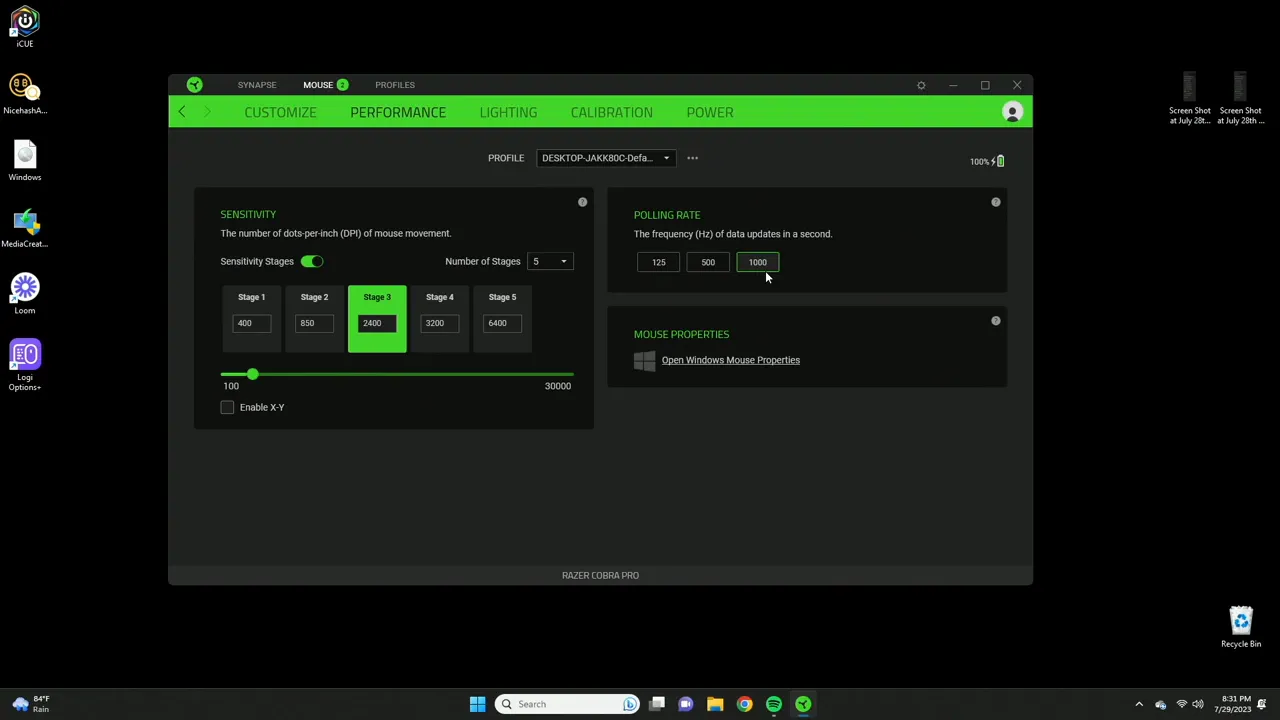
One particularly useful feature is toggling DPI on the fly with the physical buttons. During gameplay that makes it easy to switch sensitivity for long-range precision or close-quarters flick shots.
Battery life and wireless behavior
Razer claims up to 170 hours of battery life on Bluetooth and around 100 hours using Hyperspeed with the dongle. Those are solid numbers for a feature-rich wireless mouse. In general:
- Bluetooth yields the longest battery life but at the cost of higher latency.
- Hyperspeed balances battery life and performance; it is the recommended wireless mode for gaming if you want low lag without cables.
- Wired mode gives you ultimate performance and eliminates battery concerns entirely.
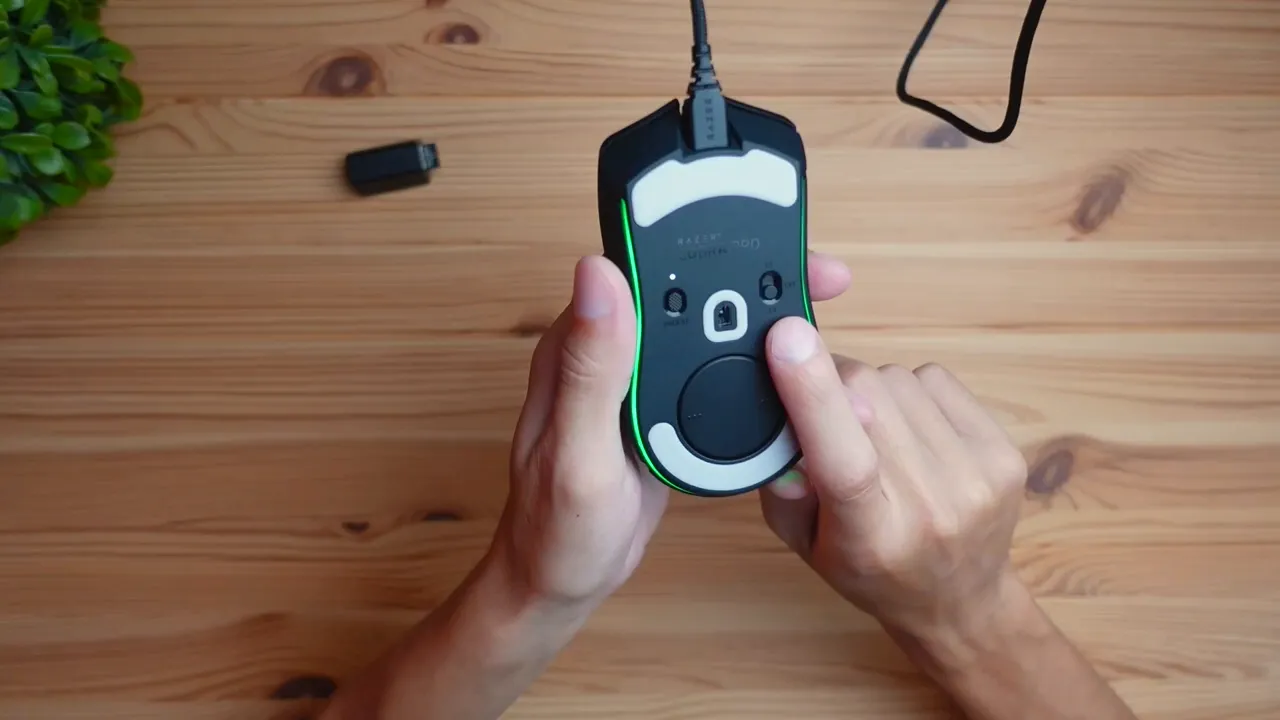
The power switch on the bottom lets you pick between Off, Bluetooth, and USB dongle mode. If you have Razer's wireless charging options, the Cobra Pro supports wireless charging via a compatible charging base, though that accessory is sold separately.
Who is the Razer Cobra Pro best for?
This mouse is a great match for:
- Mid-level and pro gamers who want a lightweight, low-latency wireless solution with on-device DPI toggles and profile switching.
- Productivity users who want extra programmable controls and crisp click feel for frequent shortcuts and macros.
- Anyone who wants a high-end, well-built mouse with strong software support and premium components like Gen 3 optical switches and the Focus Pro sensor family pedigree.
If you just want something flashy for day-to-day browsing, the Cobra Pro is overkill. But if you want a single mouse that can be tuned for serious gaming and productive workflows, it fits that niche perfectly.
Final impressions
Overall the Cobra Pro feels like a high-end gaming mouse with serious attention to detail. Its build quality, tactile switches, flexible connectivity options, long battery life, and deep software customization make it a versatile choice. The only major caveat is the lack of a left-handed or ambidextrous variant, so it is strictly a right-handed mouse.
If you want the fastest possible response, use the cable. If you want wireless performance with minimal compromise, use the Hyperspeed dongle—ideally docked close to the mouse. If you want the absolute best battery life, Bluetooth will give you that, albeit with slightly higher latency.
Frequently asked questions
What connection methods does the Razer Cobra Pro support?
It supports wired connection via USB Type-C, Razer Hyperspeed wireless via the included receiver, and Bluetooth. Wired is the fastest, Hyperspeed balances latency and convenience, and Bluetooth offers the best battery life but higher latency.
How long does the battery last?
Razer states up to 170 hours on Bluetooth and up to 100 hours on Hyperspeed wireless. Actual battery life will vary with lighting, polling rate, and usage patterns.
Can I store the wireless dongle in the mouse?
Yes. There is a dedicated compartment under a removable cap where the dongle can be stored. You can also dock the receiver and plug the extender cable in so the receiver sits closer to the mouse for better wireless performance.
Are the buttons programmable?
All of the primary buttons, the two side buttons, the DPI up/down buttons, and profile switch can be programmed using Razer Synapse to perform keyboard shortcuts, macros, multimedia controls, lighting triggers, and more.
Is the Razer Cobra Pro ambidextrous?
No. The Cobra Pro is designed as a right-handed mouse only.
Does it support on-the-fly DPI adjustments?
Yes. It has dedicated DPI up and down buttons for switching sensitivity on the fly, and DPI levels can be configured in the software, including separate X and Y axis sensitivity if you want different vertical and horizontal sensitivity.
Can I charge it wirelessly?
Yes, but wireless charging requires a compatible Razer charging mat or accessory which is sold separately. The mouse has a compartment that aligns with the wireless charging system.
What sensor and switches does it use?
It uses Razer's high-performance optical sensor family (Focus Pro lineage) and Razer Gen 3 optical switches for primary clicks. These components are geared for accuracy and fast actuation.
Closing thoughts
If you want a wireless mouse that blends pro-level responsiveness with substantial customization and long battery life, the Razer Cobra Pro is a compelling choice. It strikes a solid balance between performance and convenience while offering a luxurious feel and polished hardware. For right-handed users who demand speed, clean build quality, and software depth, this is a mouse worth considering.
KovaTech
Kova Tech is a technology enthusiast company that provides product reviews, guides & comparisons for various software and hardware products.